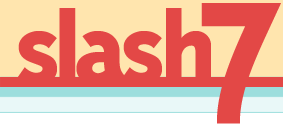Food for thought
Links for the past week or so (including older stuff that’s resurfaced in my del.icio.us or consciousness for whatever reason):
Interaction Design
- Why ‘usability’ is a path to failure
- ‘Me’ vs ‘You’ vs ‘I’ (interface language, not touchy-feely intrapersonal relationships)
- Intuition, pleasure and gestures
- Just Doist It
- Lie-ins and Tigers — even if you’re not in the market for illustration, this site is pretty amazing in the effect it has on visitors. I won’t say more.
- Gamefeel: the Secret Ingredient – a definite “must-read”
Other brain food
- Flare Visualization Toolkit
- “What does Marsellus Wallace look like?” rendered in moving type — warning to those with your speakers on: gunshots and edgy language (tell me you’ve seen Pulp Fiction and know that already)
- CMM — one dude’s information design skillz put to work
- Shiftspace — like hoodwink’d, but cooler?
- Sir Ken Robinson: Do schools kill creativity? (TED talk) (duh)
- General Semantics formulations in David Burns’ “Feeling Good” stumbled across entirely by accident, but intriguing (I’d never heard of general semantics before in this context)
- Phil Halsman: Jump awesome
- How the Brain Learns Best
Two books I just finished that you must have
These are important for anyone who fancies himself (herself) a creator. Your actual business doesn’t matter. (And yes, they’re Amazon referral links, in case it isn’t obvious.)
The Myths of Innovation — Scott Berkun
I literally just finished this one last night. It’s so awesome. I know Scott’s a great writer but I can’t remember the last time I read a book that managed to balance serious scholarship, tons of research, deep thinking and hilarious (yet seemingly appropriate) silly jokes. Let me be clear: This book is not a riot. The jokes are subtle and fairly far between. But you’re reading, you’re learning, you’re going “Aha” and then occasionally a humorous metaphor grabs ahold of your prefrontal lobe and gives it a delicious yank. Go Scott.
And I may have focused on the humorous portion (because it took the book from merely “awesome” to “kickass!”), but believe me: this is still a serious (and seriously valuable) book.
In other words, it’s good for you but enjoyable enough to be the book you can’t wait to read over lunch. It’s also practically worth it just for the recommended reading list and quotes alone.
Made to Stick — Chip and Dan Heath
This book is lighter fare, but no less useful. Made to Stick is all about identifying and crafting ideas that stick to people, unshakeable and influential. If you’ve ever caught yourself whining that if people would only listen, they’d understand the superiority of your ideas, this is the book for you. And if you’re not a whiner—and accurately place the blame where the blame belongs—this book will be even more helpful.
There are witty acronyms to help you remember. The book makes use of its own techniques, something I haven’t really seen so well put in action since Coercion. The techniques apply to marketing-type messages just as much as they do for crafting learning and educational tools. Basically it’s Educational Science Lite™.
I found I already knew a fair amount of what this book tried to teach me, although less expressly. But I still learned enough to be worth the price of entry (and it was an enjoyable read).








Thanks for the links Amy. I really enjoyed The Myths of Innovation too. It’s nice to find an educational book like this that’s also fun to read.
Every book costs about a million for the information, given there!
Thank you. I just went for Made to Stick, will try to make a short review when I have some time.